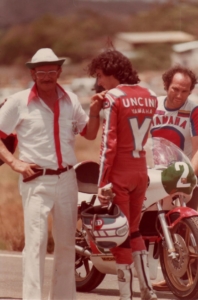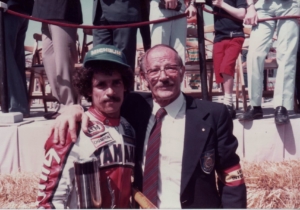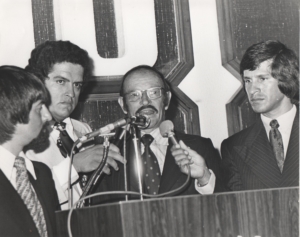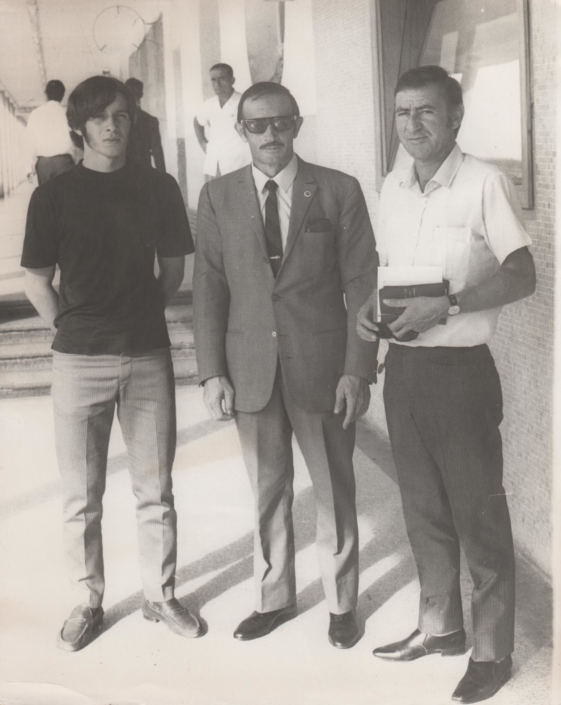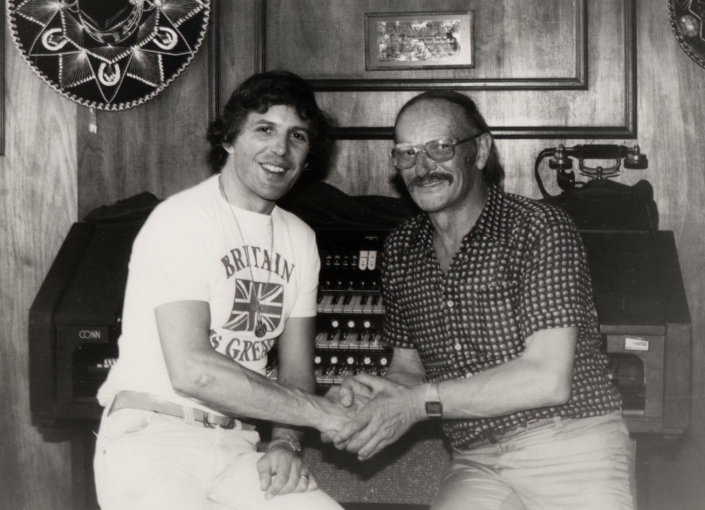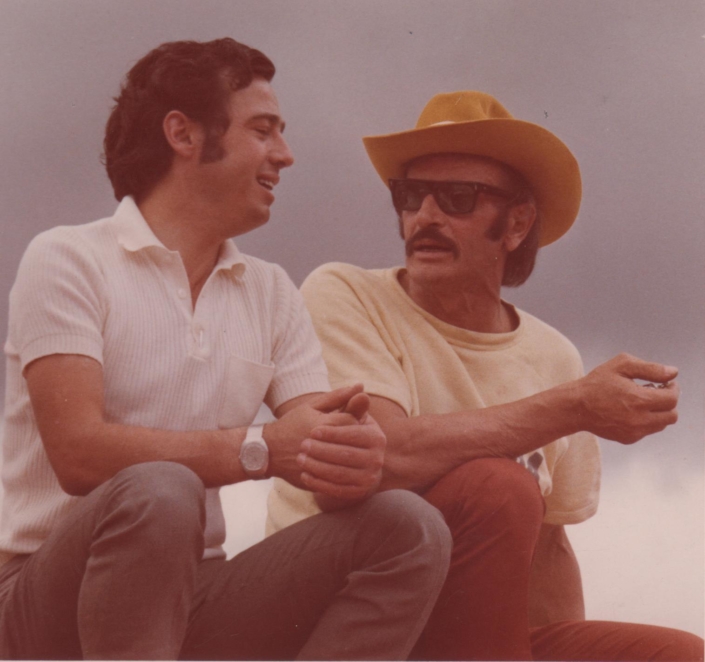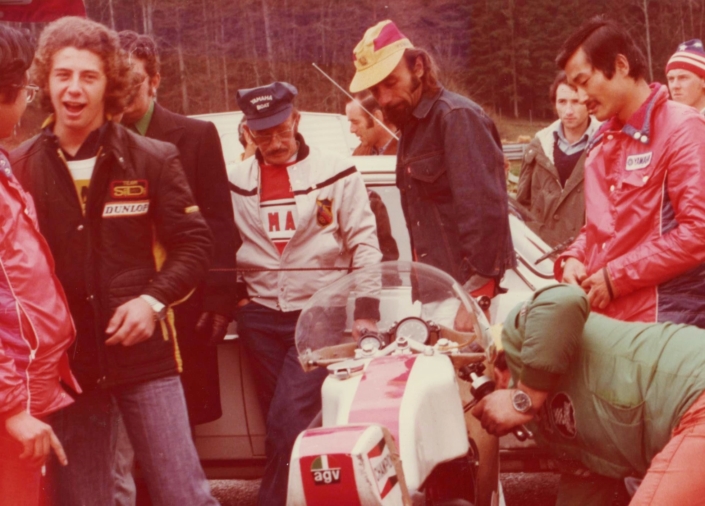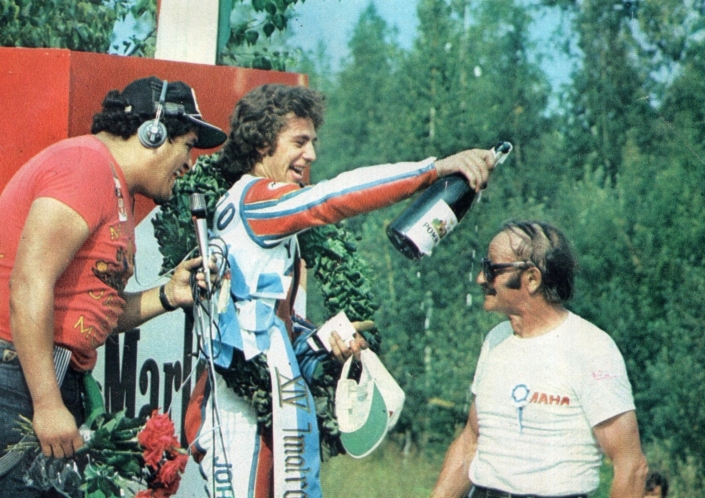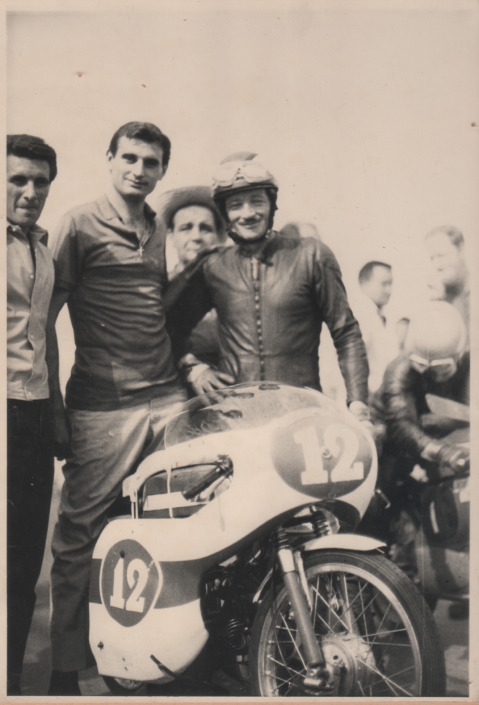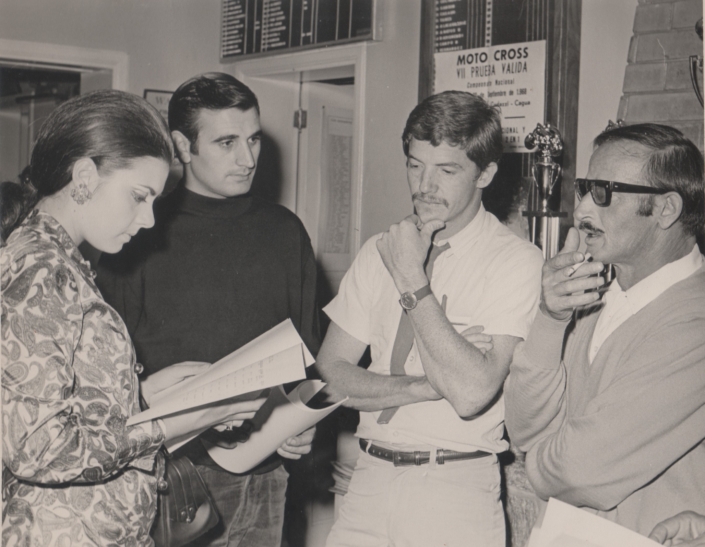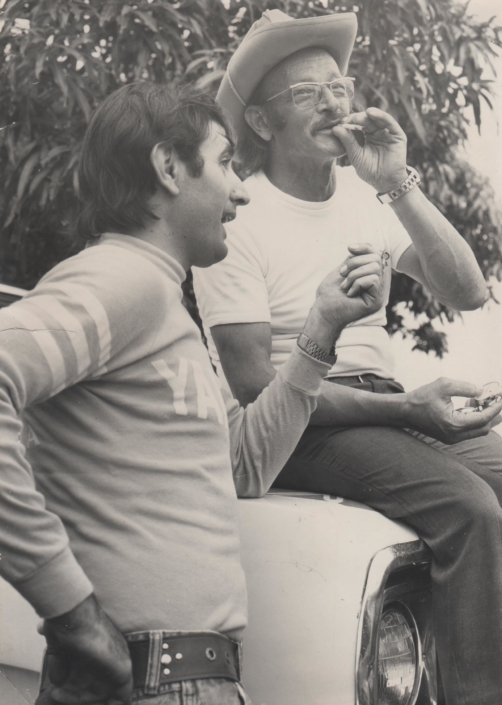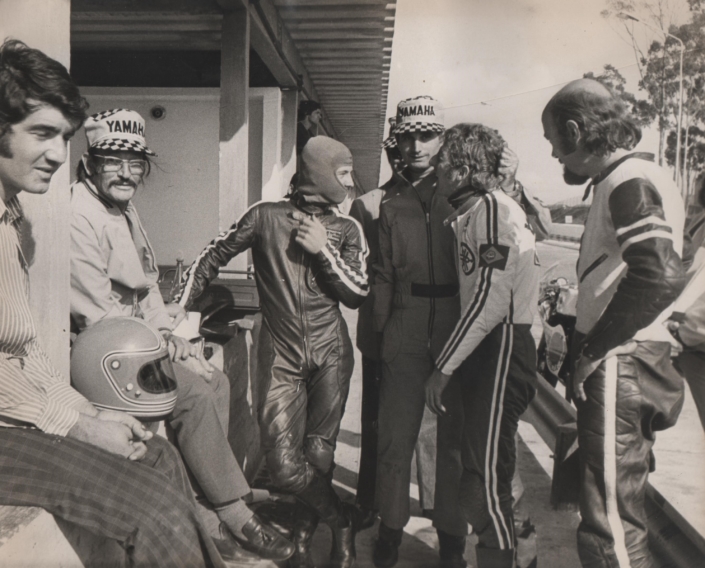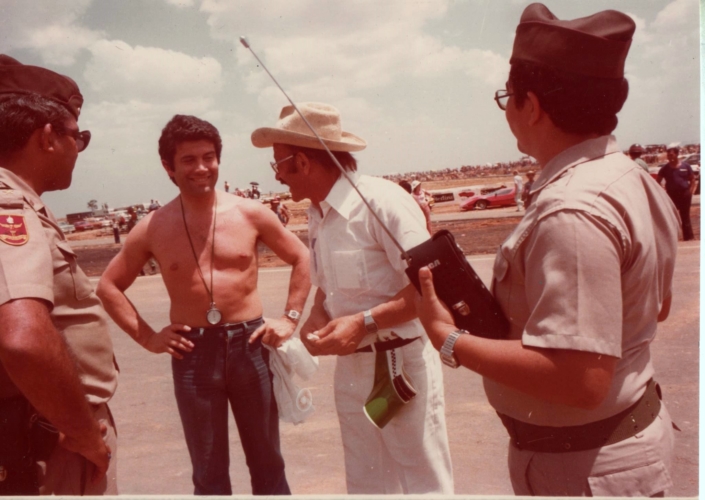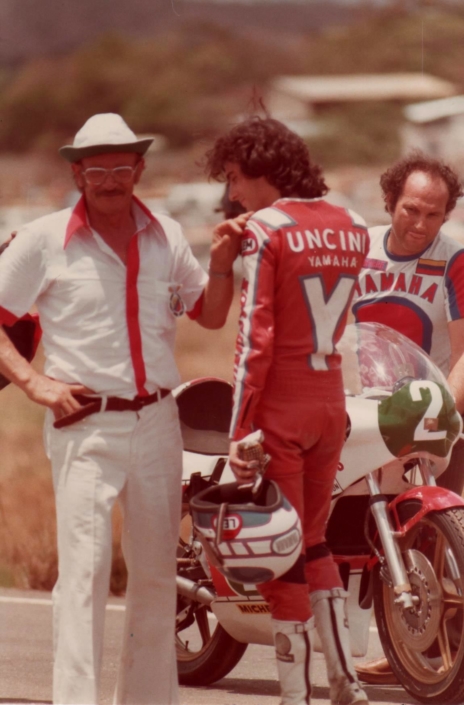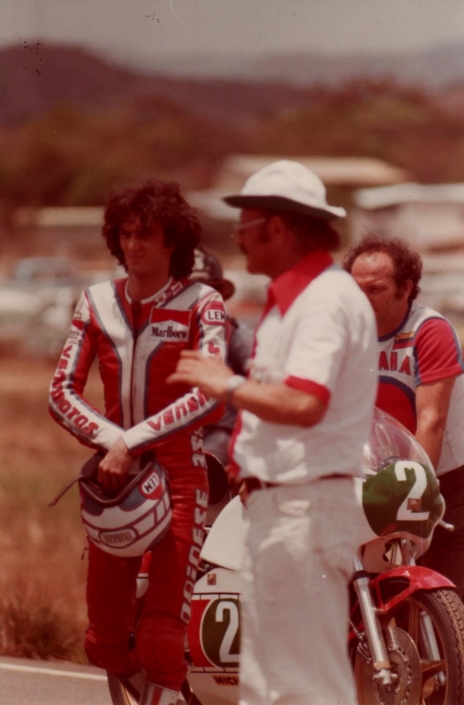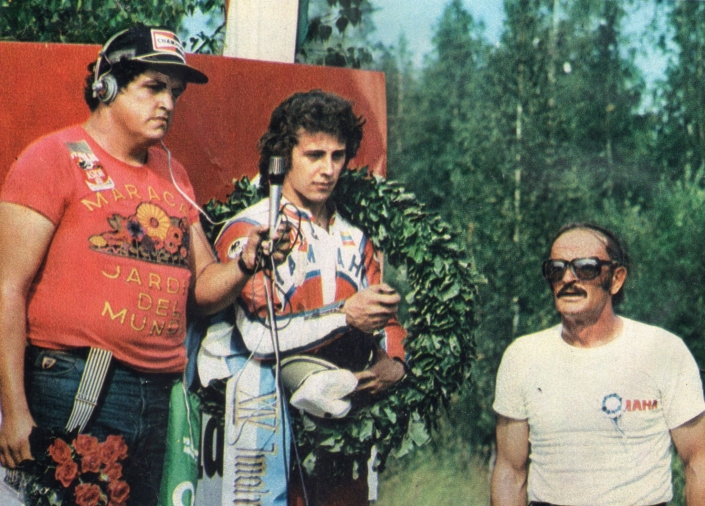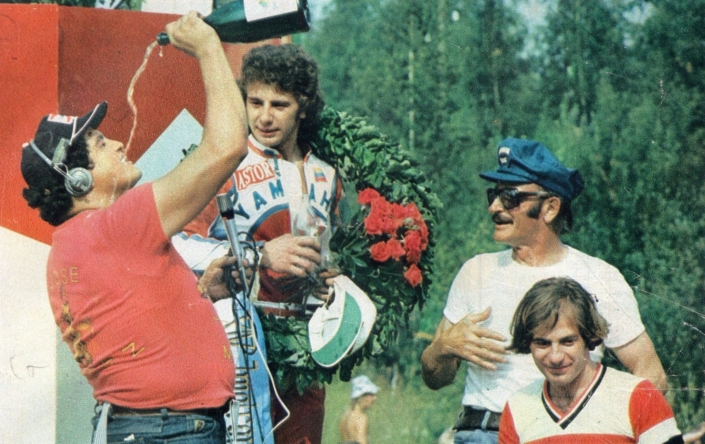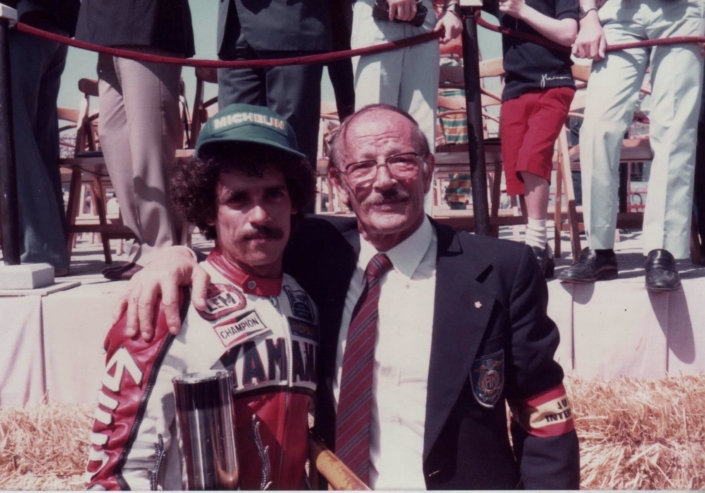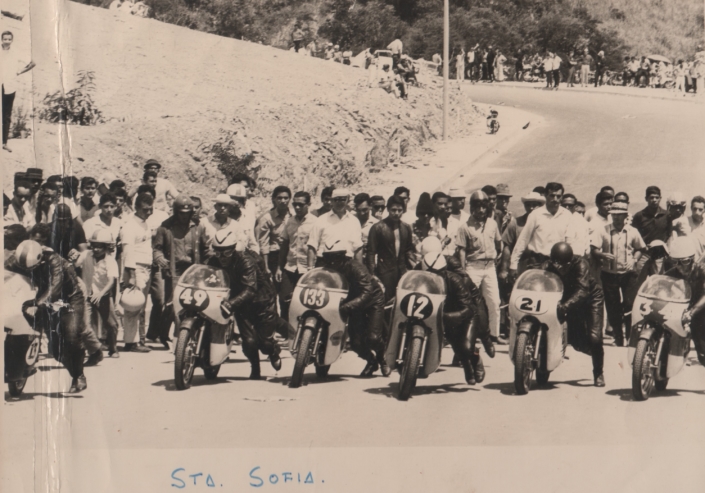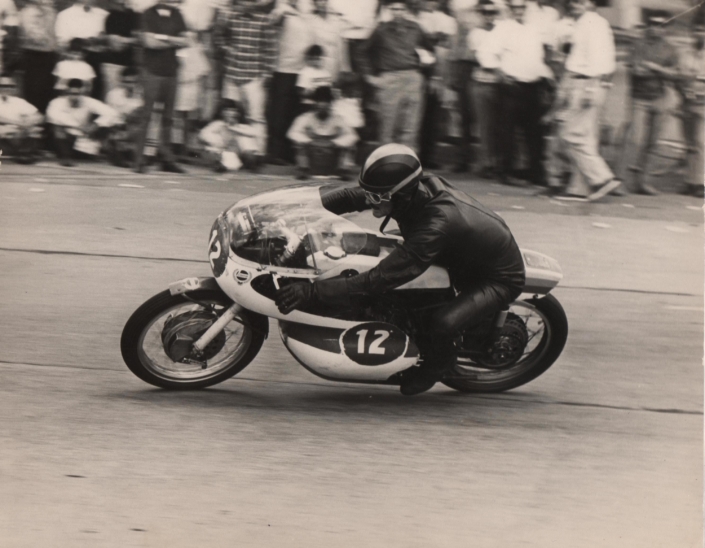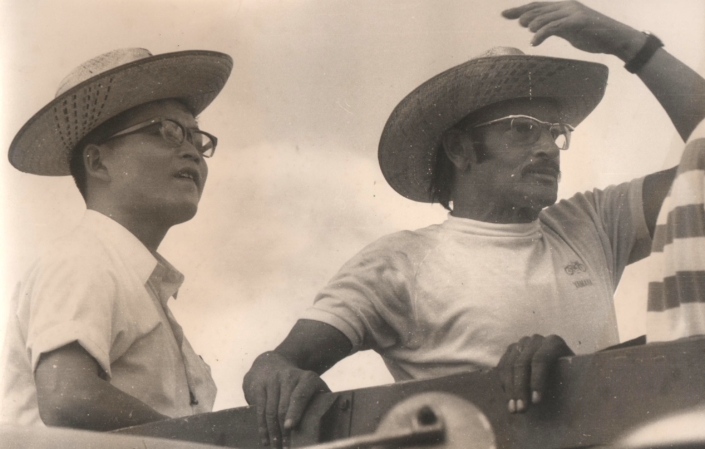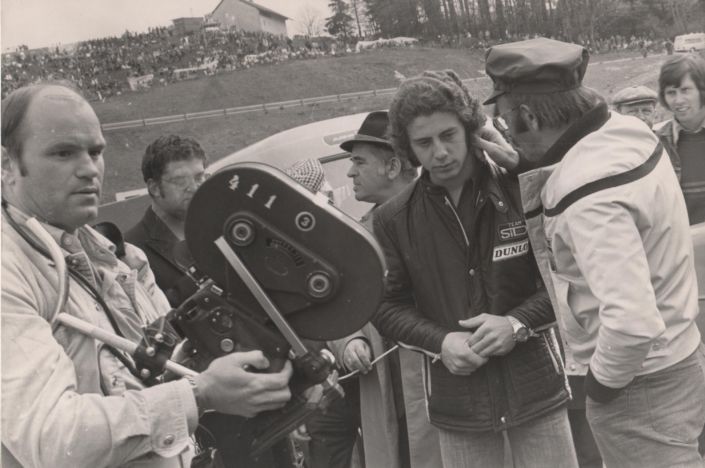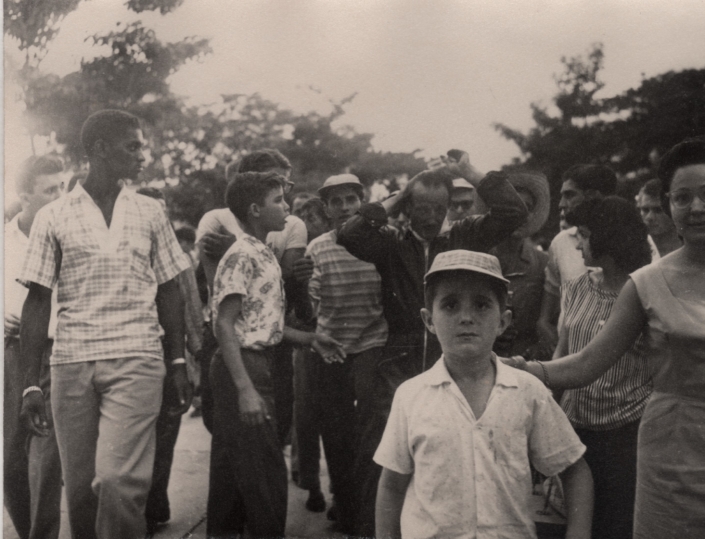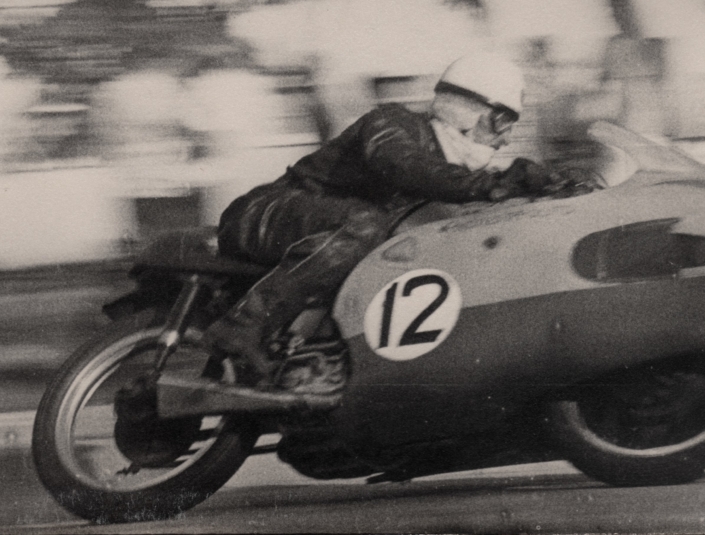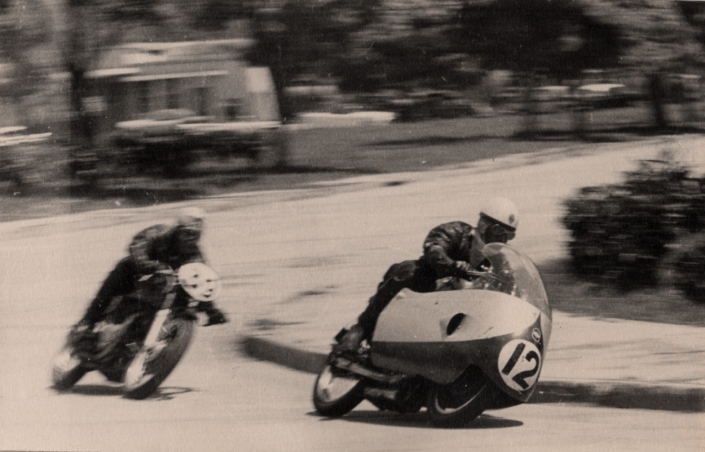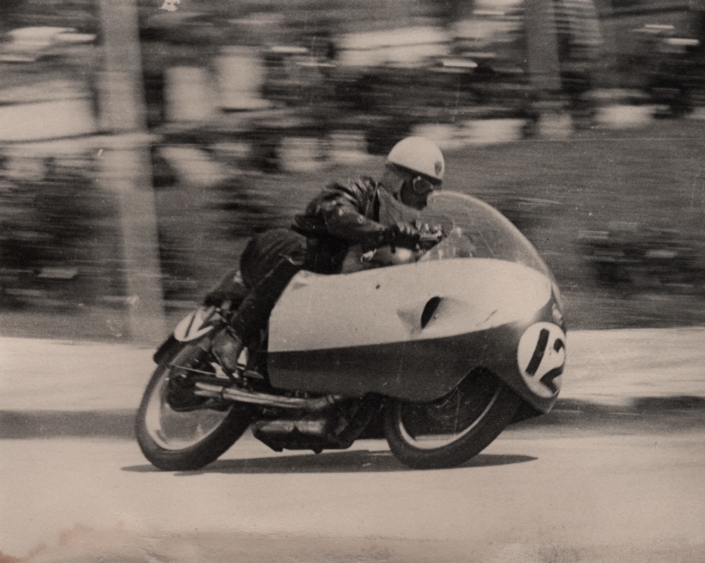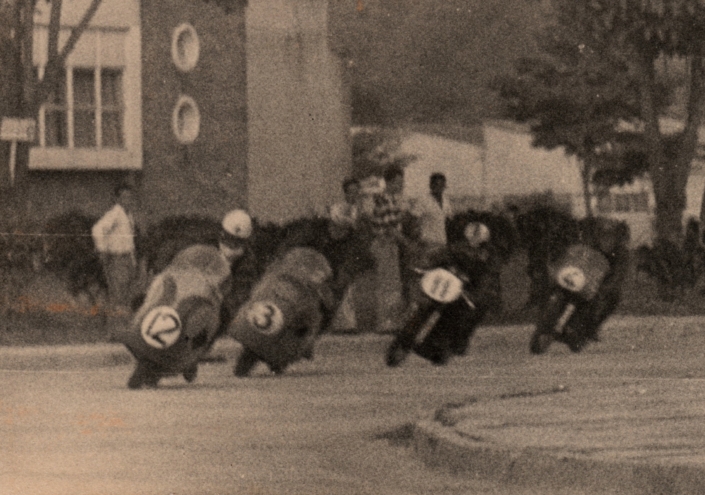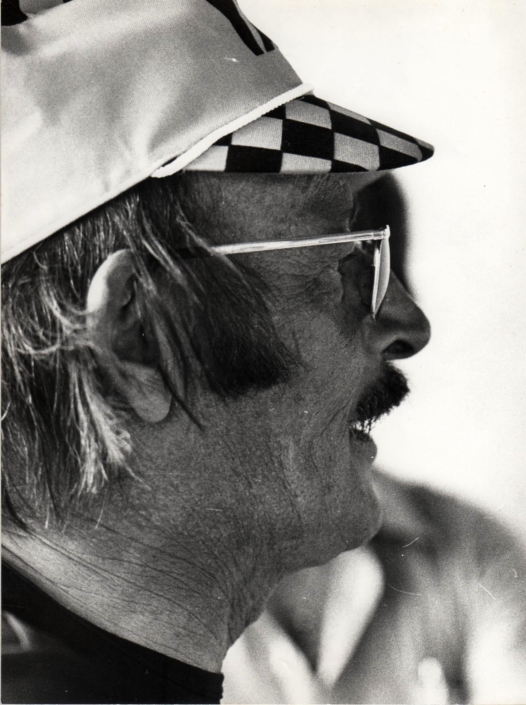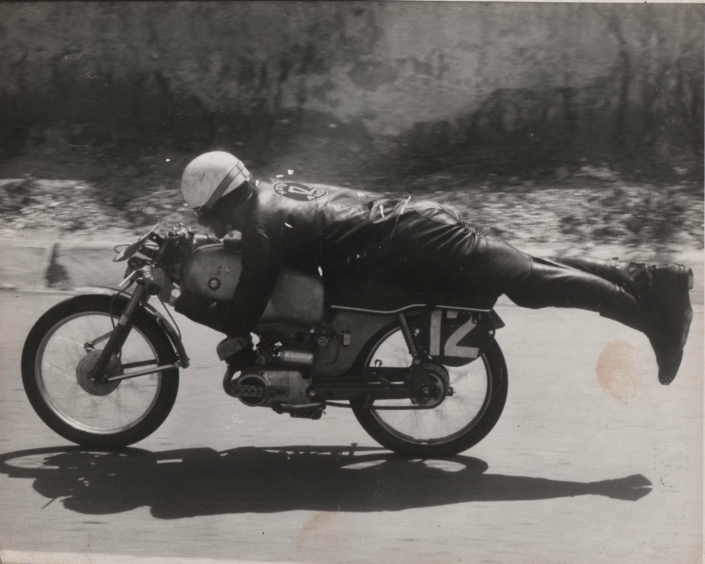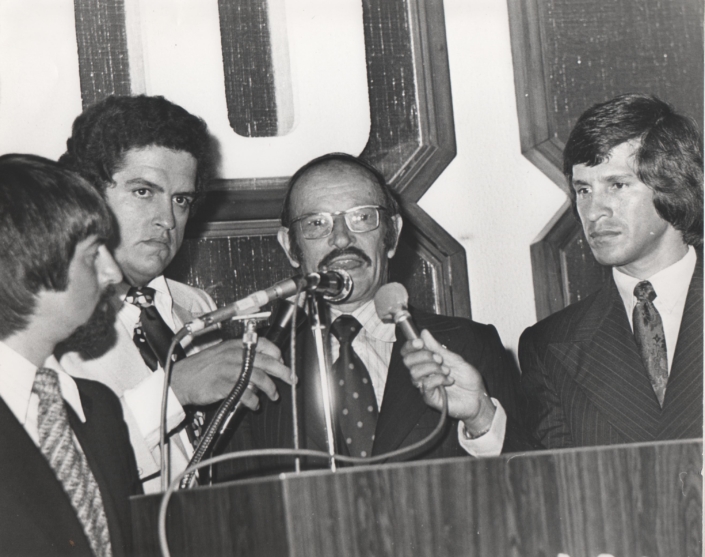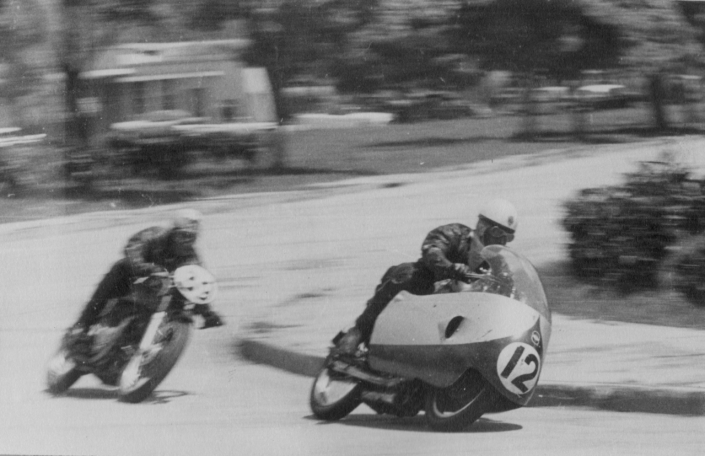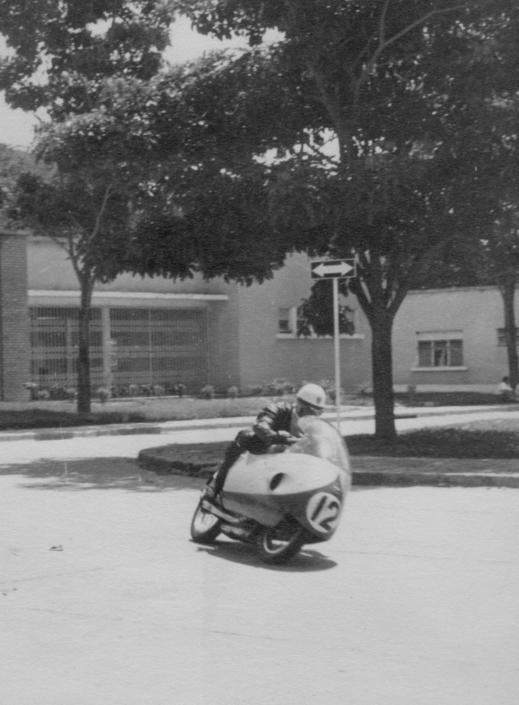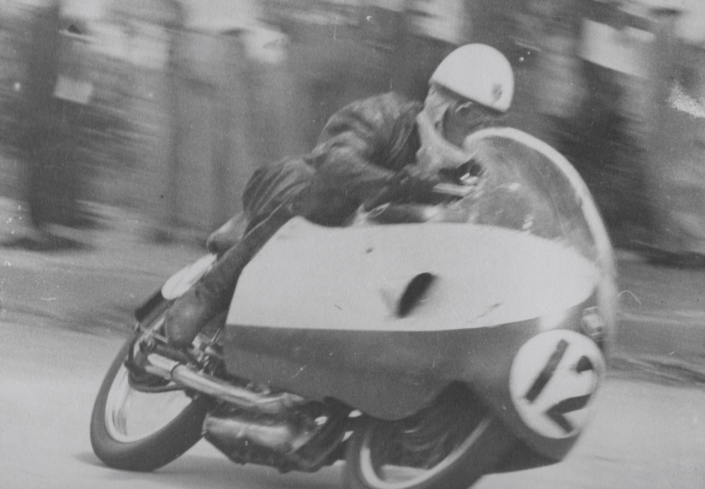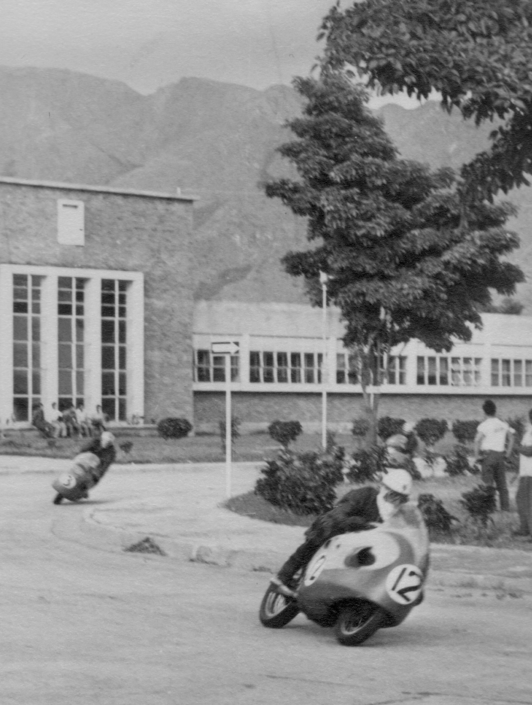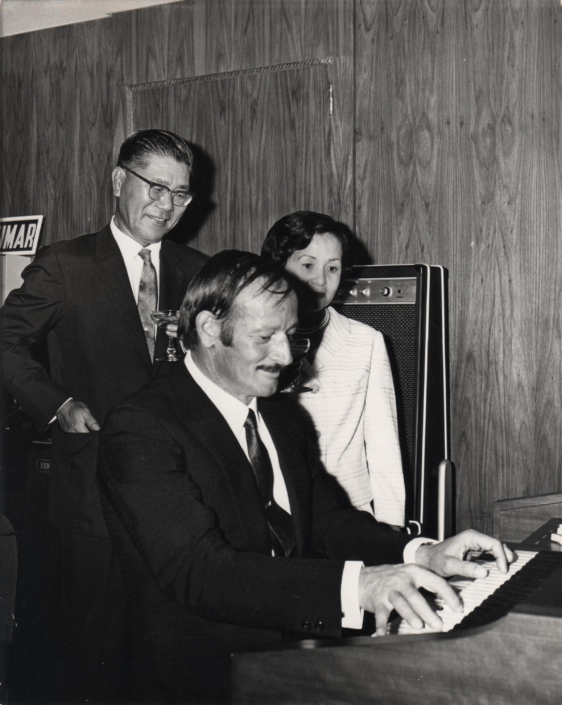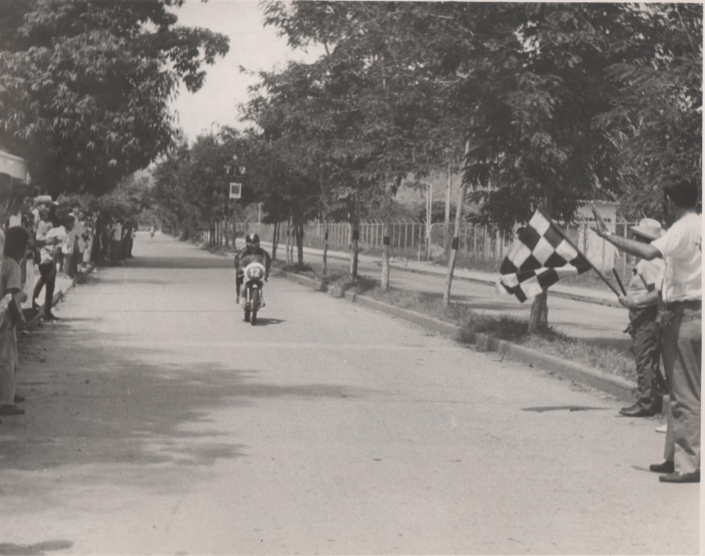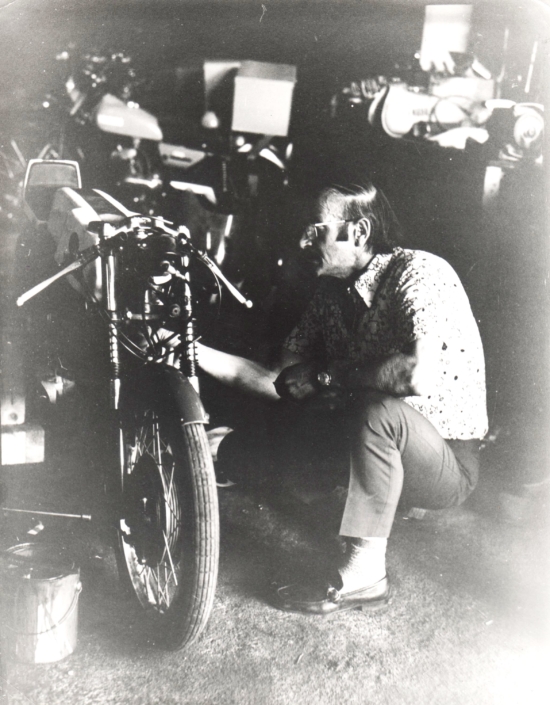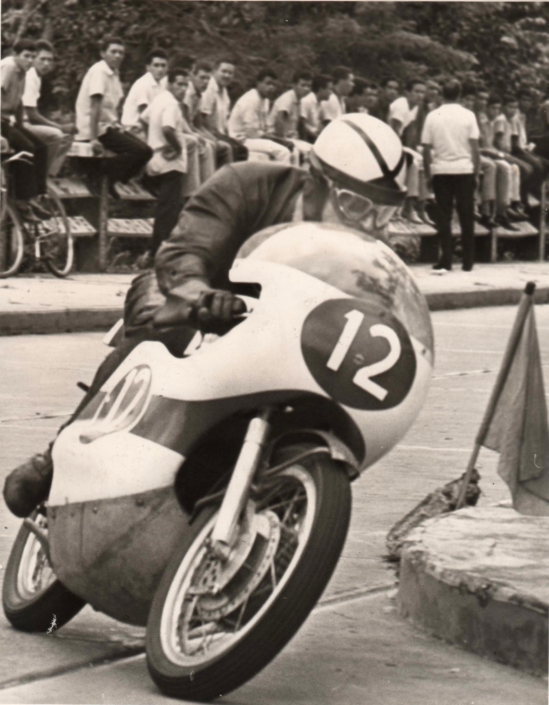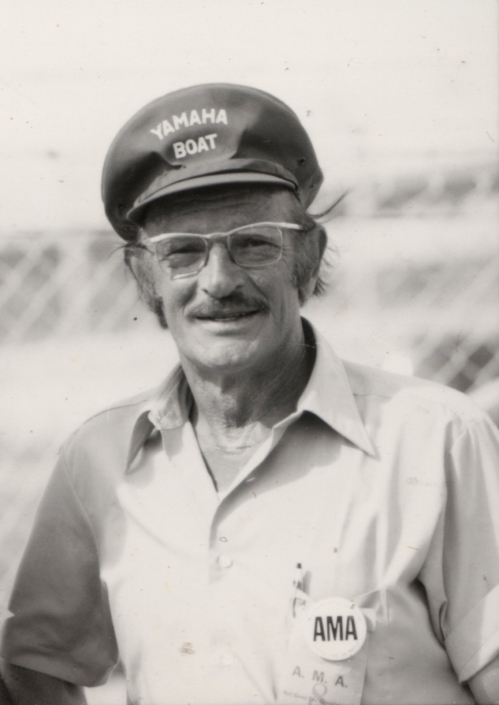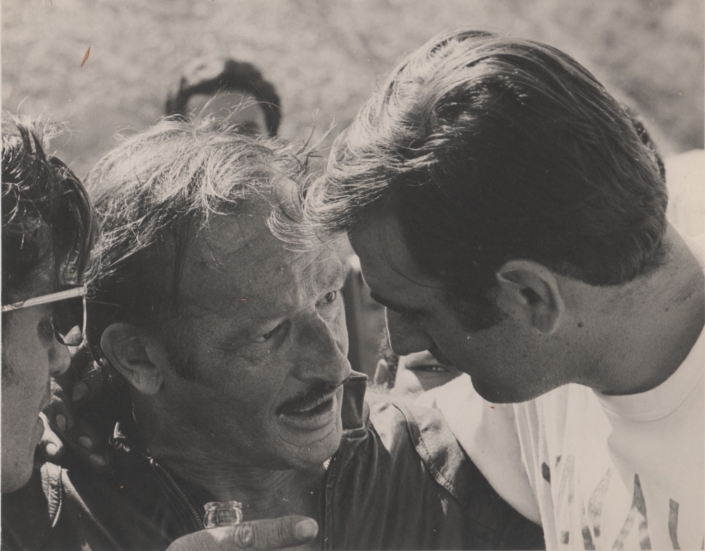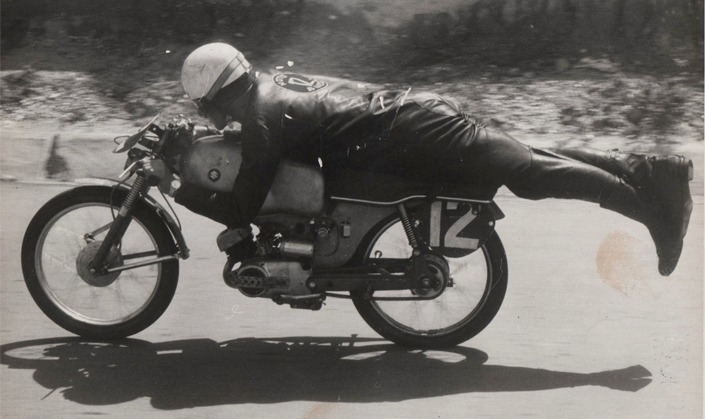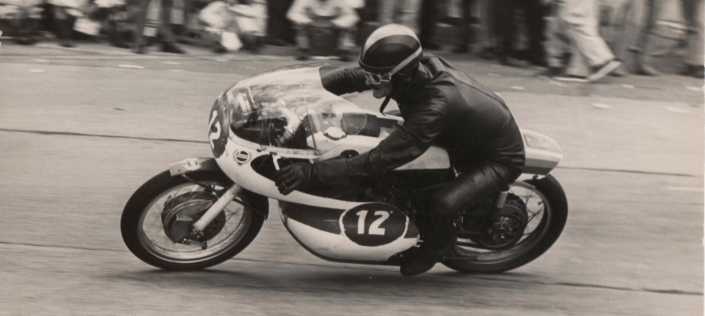Andrea Ippolito was born in Torre del Greco (close to Naples) on 3 January 1924. From a very early age, the dynamic Andrea, son of a bicycle and moped dealer, became interested in mechanics, and in speed.
However, in 1940 Italy became directly involved in World War II as an ally of Germany and Japan. The 16-year-old teenager Andrea Ippolito enlisted in the Royal Italian Navy. He survived the sinking of two destroyers, was captured by Nazi forces and spent nearly two years in a prison camp in Germany under inhuman conditions. Peace arrived in Europe and the world in the middle of 1945. Back home, at the age of 21, Andrea was finally able to pick up his dreams once more and enjoy the adrenaline rush of his true passion: speed.
He began to compete in regional motorcycling races. In one of those races, he had an accident, losing part of two fingers of his left hand. Instead of discouraging him, the accident fuelled his determination to achieve success. In mid-1953 he took part in the legendary Milano-Taranto race, a speed marathon of 1300 kilometres, in which 350 riders were taking part. Driving a Bianchi 125 cc, he completed the race with a time of just over 18 hours, ranking 39th in his class. On the brink of turning 30 and married to the young Maria with their one-year-old son Vito, Andrea understood that his economic prospects in Italy were not the best. Once again, he took to the sea, this time as a passenger. He travelled across the Atlantic, arriving at La Guaira harbour in Venezuela. In the second week of December 1953, Andrea Ippolito arrived alone with little luggage. Accompanied by a heavy box full of all kinds of tools to repair engines, he had not hesitated to bring along a wooden box holding a Guzzi 500 motorbike, in one piece, together with his leather suit, helmet, boots and gloves and other accessories. As soon as he arrived in the Venezuelan capital, he managed to start working as a motorcycle mechanic, the profession he stated when registering with the immigration authorities.
Andrea settled in the neighbourhood of La Bandera. The initial language barrier did not prevent him from winning the sympathy and trust of all those who knew him. He also had an innate talent for negotiating. But the call of speed was too strong, and in the first days of January 1954 he took part in his first competition: The Subida de Mare-Pedro García, the route that links Maiquetía with the capital.
After a few months he achieved his first victory. His feelings of satisfaction and euphoria went hand in hand with the expansion of his business. What had begun as a small garage had now grown into a great motorcycling business that had become a magnet for local speed enthusiasts and Italian compatriots.
Andrea Ippolito first represented Venezuela in January 1956 in the international competitions held in Peru. In addition, his outstanding successes in business came together with his first titles as national champion, as well as the inauguration of La Casa de la Moto. There, he was partnered with Ducati, a company with which he always maintained a close relationship, alongside other brands.
Andrea Ippolito knew how to compete with Italian motorcycles such as Gilera, Guzzi or Mv Agusta, as well as the English Matchless, AJS or Norton 500 cc. In July 1958 he was involved in a major accident at the Circuit of Los Próceres, in Caracas. His motorcycle was scorched, and he suffered minor injuries. One of his main rivals, José Antonio “El Negro” Vivas, considered the most dashing rider of his time, died as a result of a crash that same day.
In 1959 Andrea Ippolito travelled to Chile, winning in Valparaíso. The year after, in Argentina, he shone again, and in the capital, Buenos Aires, he completed his first appearance on a permanent circuit.
After the riots following the fall of the Marcos Pérez Jiménez government in Venezuela, motorsports were particularly affected, and within in a few years, motorcycle races for large-capacity machines disappeared. In 1961, the Vuelta Central race was held in Venezuela. It was an open-road race over 450 km linking Valencia with San Carlos, Acarigua, Barquisimeto and San Felipe, with the finish line back again in the capital of the state of Carabobo, Valencia.
At the age of 37, Andrea Ippolito won the first edition riding a Suzuki. The Japanese firms, with Honda at the forefront, were starting to carve out a niche for themselves in the local market. Small Japanese machines were gaining more and more ground. This did not escape Andrea Ippolito, and despite his love for the Italian manufacturers, he understood that the commercial future was linked to the efficient products from the Far East. He managed to partner with Yamaha.
In 1961, still in La Bandera, he established the company Venemotos. It was the agreement he made with the firm Iwata in 1964 that would drastically change the future of the motorcycle industry in Venezuela.
As he turned 40, he established a complete network of representatives throughout the country. Many dealerships there were managed by Italian immigrants and young Venezuelan entrepreneurs who fully trusted the skills and unswerving word of the dynamic Andrea Ippolito.
He launched a very aggressive marketing campaign, of which competitions were a fundamental component. In 1964 he called upon a few of his former rivals and colleagues, with whom he created the racing team Venemotos-Yamaha, a team that in just over a decade would dazzle the world.
Motocross arrived in the country in the second half of the 1960’s. Andrea Ippolito immediately became involved, with his company, in this discipline that captivated a new generation of young people. In the early 1970’s, his second son Claudio made his début on dirt tracks and soon became one of the best motocross riders in Venezuela.
At the same time, Andrea continued to show his class in road racing. He added several trophies to his record in the mid-range cylinder capacity. The 1968 season, when he came close to victory in the 250 cc class in an epic day of the Bolivarian Championship held at Los Próceres, was a stand-out moment. Only an accident two rounds before the end of the race prevented him from winning. A rider from Caracas, Gustavo León was also involved in the accident. He was riding an official Honda brought from Japan, like Andrea Ippolito’s Yamaha RD56, a prototype that had just participated in the World Championships.
Andrea had a passionate perspective as a rider and director of a racing team. He also shared his successful vision as an entrepreneur and businessman with others. At the end of 1972, he became a sports leader, assuming the presidency of the Venezuelan Motorcycle Federation. That year, he met a 16-year-old rider who made his début in speed racing on the very same day that the veteran “Zorro” achieved his last victory. His name? Johny Cecotto.
Andrea Ippolito became the mentor of this talented rider. And in less than three years, Johnny Cecotto and the Venemotos-Yamaha racing team took the world title in the 350 cc class. He dislodged Italian Giacomo Agostini, leader of the Yamaha official racing team, who had previously dominated the class for eight years.
In 1975, Andrea Ippolilto burst on to the world stage following another great sporting move – the creation of the Latin American Motorcycling Union. As fate would have it, Andrea Ippolito became its first president. The new body brought all the nations of the region together and became a benchmark for other continents such as Europe. Years later, in 1998, its model was replicated by the International Motorcycling Federation.
The sporting successes of Johnny Cecotto with the Venemotos-Yamaha racing team placed Venezuela at the epicentre of the international motorcycling competitions. Immediately, Andrea Ippolito, sparing no resources, transformed and expanded the San Carlos Circuit in 1976 so as to be able to host the Venezuelan 200 Miles in the 750 cc class. Between 1977 and 1979 three editions of the Grand Prix of Venezuela were held in the 500, 350, 250, and 125 cc classes.
As a great advocate for the safety of riders on the tracks, Andrea Ippolito joined the crusade that would lead to the disappearance from the official international calendar of inappropriate scenarios such as the Isle of Man TT in Great Britain. In 1977, Andrea organised the first FIM World Congress outside of the European continent. In 1979 he joined the Commission of Circuit Racing (CCR) after being elected in Montreux (Switzerland), and was re-elected three years later in Opatija (formerly in Yugoslavia, now in Croatia).
In 1978, after the death of Venezuelan rider Aldo Nannini, Andrea hired the promising Italian rider Franco Uncini, who was destined to achieve great results. The following year, Uncini’s position was taken by his compatriot, four-time world champion Walter Villa, who acted as a mentor for Ippolito’s new promising rider Carlos Lavado.
At the end of 1979, the world championship was threatened by a split promoted by some riders. But Andrea Ippolito, who was a tireless advocate for riders, remained on the side of the FIM, the official world governing body. At the end of 1980, Johnny Cecotto, who that year had defended the Venezuelan colours, left the motorcycling world to move into motor racing. Although Andrea Ippolito did not support his decision, it came as no surprise to him. He had already prepared the way for his replacement in the Venemotos-Yamaha team by the Caracas-born rider, Carlos Alberto Lavado Jones. Despite being involved in numerous crashes, Andrea had the wisdom to guide the impetuous Carlos. In 1983 everything was now in place for them to conquer the world title in 250 cc, the strongest intermediate class after the abolition of the 350 cc.
Andrea Ippolito, who had recently turned 59, still had many projects in mind, such as organising another speed GP in Venezuela. He was very interested in a project to build a new racing circuit on the outskirts of Caracas. Nor did he make any secret of his desire to continue his ascension within the International Motorcycling Federation. But in mid-1983, out of the blue, he suffered a severe cardiac arrest. This inexhaustible man, who had overcome all types of obstacles and dangers in order to become a renowned motorcycle rider, a great businessman and a leader of his sport, died on Sunday, February 13.
Despite the unexpected physical absence of Andrea Ippolito before the beginning of the championship, the Venemotos-Yamaha racing team won the world title in the 250 cc class – thanks to the impeccable performance of Carlos Lavado, supported by the racing team’s new member, Ivan Palazzese.
Both Andrea’s sons, Vito and Claudio followed in the legendary footsteps of their late father. Despite their youth, they were able to carry on the enormous task, inspired by the same mystique and passion. More than six decades after the arrival of Andrea Ippolito in Venezuela, his legacy remains very much alive.




